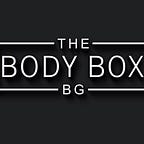Alcohol: Your Weight Loss Enemy
If you want to lose weight and control your appetite, alcohol is off the menu. I know that there are a lot of myths out there that say that you can have one or two glasses of wine per day as part of a healthy diet, but I’m sorry to tell you that it is just not true.
You may have also read about a magical substance called resveratrol, which is a chemical found in the skin of red grapes and may help to reduce the risk of obesity, inflammation, diabetes, heart disease and also certain types of cancer.
Unfortunately, to realise any of the potential benefits from resveratrol, you would have to drink far more red wine than would be safe to consume. Fortunately though, resveratrol can now be found in supplement form.
There are numerous studies that suggest that the moderate consumption of alcohol, (moderate has not been clearly defined however) can benefit your heart. Studies suggest that this effect may be related to an alteration in cholesterol metabolism via an increase in the “good” cholesterol (HDL) and a decrease in the “bad” cholesterol (LDL). Some studies have also suggested that moderate alcohol consumption can lead to a lower incidence of vascular plaque build-up and blood clot formation. Whatever your particular view is on these studies, they have still not persuaded doctors to prescribe any form of alcohol consumption to prevent or treat heart disease or for that matter, any other medical condition.
In actual fact, alcohol can be hazardous to your body for a number of reasons. It can alter the metabolism of other medications that you may be taking and is especially dangerous when mixed with blood thinners, including aspirin.
Chronic or even moderate alcohol consumption carries substantially more risk to your overall health including but not limited to, high blood pressure, elevated triglyceride levels, numerous cancers, damage to your heart muscle, liver damage resulting in cirrhosos and also the risk of addiction to the feeling that alcohol provides.
Many of the aforementioned problems are made even worse if you are overweight or obese. Alcohol can promote frequent and resistant weight gain. Consuming alcohol stimulates your appetite, contributes to dehydration and increases the amount of calories that you subsequently eat.
Moreover, even though alcohol can be low in sugar, it behaves like a sugar drink. For example, although beer contains no simple sugar, it is loaded with carbohydrates that behave like sugar once you consume it.
The carbohydrates and sugar in any type of alcoholic drink gets preferential treatment from the liver before it metabolises any other carbohydrate and fat that is already in your blood stream. This then produces an exaggerated insulin response, with another spin of the sugar cycle, a dip in your blood sugar and an increase in your appetite.
Alcohol also relaxes your central nervous system, which often means that you are paying less attention to what you are eating. If you spend the evening drinking alcohol of any kind, the sugar effects of alcohol cause you to crave sugary foods that are likely to inflate your appetite.
Because alcohol behave like a diuretic, a substance that makes your kidneys generate more urine than is appropriate, you are likely to become dehydrated. Dehydration creates a stress response which will cue your body to store body fat.
Alcohol is also toxic to muscle tissue and serves to further impair growth and repair. It also interferes with other hormones such as testosterone and naturally occurring human growth hormone. If you are looking to build up lean muscle tissue, alcohol is a major obstacle to that process.
Alcohol is toxic to your liver, which further disrupts your metabolism. Through a chain of biological processes, alcohol raises the level of estrogen in the blood stream, and the enzymes that would have helped you metabolise carbohydrates and fats are now pre-occupied with metabolising the estrogen instead.
As a result, your blood lipids increase and you convert more carbohydrates to body fat. This increased estrogen also puts you at a greater risk for a number of types of cancer.
A study carried out by the National Cancer Institute revealed that about 3.5 percent of all cancer deaths were alcohol related. For men, alcohol increases the risk of oral, pharyngeal and laryngeal cancer as well as cancer of the oesophagus. For women, alcohol raises the risk of estrogen related breast cancers, with alcohol being responsible for 15 percent of all breast cancer deaths. The study also revealed that you do not need to drink much to be at risk and it was discovered that as little as one drink per day will put you at risk.
As you can see, alcohols effects on your weight and appetite don’t relate only to the alcohol itself but also in the way that it is consumed and the other body changes that it produces, affects that are rarely included in studies of alcohol and weight.
Having said all this, research does suggest that when lean individuals consume less than two drinks per day, their weight is not affected, although there is a slight trend towards being heavier when weighed. However, when either overweight or lean people consume more than two alcoholic drinks of any kind, significant weight problems result.
Whether by promoting your appetite, relaxing your ability to refrain from that one extra bite, making you thirsty or boosting your estrogen, alcohol is a weight management catastrophe that ultimately does nothing for your health. If you are struggling with losing weight and also drinking alcohol, you are further stacking the odds against yourself.
